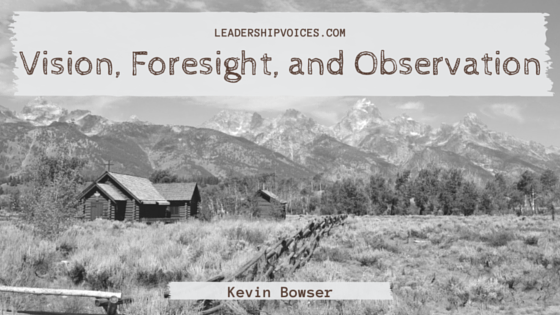Are “vision” and “foresight” the same thing? Or, more importantly, are they synonymous with “leadership”? Let me say quickly that I do not believe that they are synonymous. Consider this as a follow up to last weeks article about a quote that has been attributed to Henry Ford. In that article I called him a “foresighted innovator.” I equated foresighted innovation with being a leader. So, does that mean that Henry Ford was therefore a man of vision? Does that mean that he was a leader by many of the other accepted leadership definitions?
I find myself reflecting this week on a Bible passage that you may hear occasionally when some other types of leaders wish to address their followers. Personally, I have seen it used when church leaders want to speak to the issue of visionary leadership. Here is that often misquoted (and occasionally misused) scripture.
“Where there is no vision, the people perish”.
It is found in the Old Testament in Proverbs 29:18. It is used many times from a church pulpit to exhort us to catch the vision that a pastor has seen and to encourage us onward to the destination that has been seen in the vision.
Having vision, communicating a vision, and catching a vision are all vital skills for leaders and followers alike. But I submit to you that there is a BIG difference between being a visionary person and being a leader.
Let me explain my thoughts this way.
Click here to read the rest of the article »











